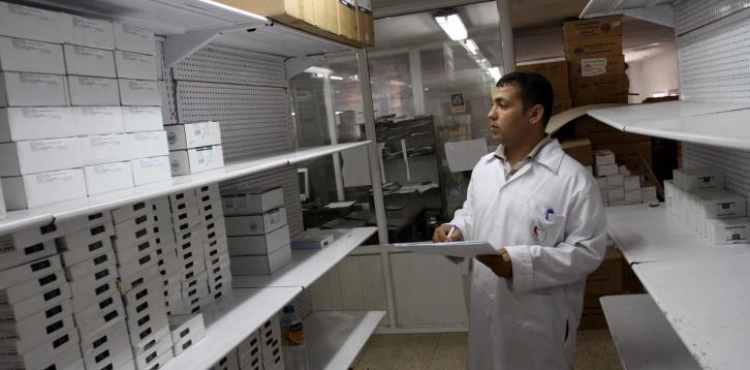The Ministry of Health has warned that half of the patients in the Gaza Strip have been without medication due to a 52 percent drug deficiency caused by the 12-year-old Israeli blockade.
In the presence of officials from the Ministry of Health and representatives of the media, 52% of medicines and medical consumables are an unprepared proportion of hospitals in the Gaza Strip, according to health spokesman Ashraf al-Capacity during a meeting organized by a Palestinian foundation in Gaza City. "So this crisis has hit the nerve of health services".
The capacity was confirmed to run out of 14 varieties of therapeutic milk and dietary supplements, which more than 50 children need in Gaza hospitals.
"This is not just transient numbers and tales that tell and list, and part of them pays a harsh price from the lives of our sons and daughters when they go to treatment and they have not found a cure pill."
In 2018, 56 cases of Gaza were not recorded, and the occupation was not allowed to leave the strip to complete the flights flights, in contravention of the Fourth Geneva Convention and international humanitarian law.
The capacity stated that 1150 patients with kidney failure and kidney transplant do not have the "blood inhibitors", and 39 children do not have blood transfusion tubes, "while some medical crews started to use a type given to adults, which greatly affects their health "He said.
He noted that there are 125 hemophilia patients, 50% of whom are children suffering from hypocoagulation / "factor 8 Wevaktor 9", and that the depletion of the treatment of increased iron deposition in blood for thalassemia patients rains the lives of many patients.
Because of the Israeli blockade of the Gaza Strip, the health situation has worsened dramatically;
He pointed out that the Ministry of Health´s expenses for medicines in the first half of this year are only $ 10 million out of $ 20 million, and "everyone should be aware of this fact."
"Since the beginning of the year, there have been no medical imports at the official level and relief, but there is nothing going on, and half of Gaza´s patients have no treatment, so there is no way to wait long, everyone must work to resolve this crisis, "he said.
"It is not possible to wait too long to stop the drug crisis in Gaza, so the basic services offered in the primary care of the patients can not be stopped," said Munir al-Barsh, director general of Pharmacy at the Ministry of Health .
He described the lack of basic services for patients and the provision of pressure medication and diabetes in serious order; "This suspends the work of any ministry anywhere in the world."
He noted that more than 60% of the medications required for cancer patients do not exist, and more than 80% of them ceased because they are therapeutic protocols and not a single drug class.
He explained that this received 8,000 patients from taking their therapeutic doses, in addition to 48 thousand cases of chronic diseases not available to them treatment of pressure and sugar.
Al-Barash Answered: Some Questions Nothing found About: the Where Medicines And Medical Supplies go The The with In Gaza, stressing the The That Are The International Community is on Placed Strong, Control - Over Medicines with In The Sector, "How To To The enter and The Where To Go The The .
He Explained That The Relief And Works Agency For Palestine Refugees (UNRWA) and through the understandings of the United Nations Special Coordinator in the Middle East Nikolai Mladenov formed the so-called "Monitoring Unit" on medicines and supplies in Gaza.
"This unit is watching every pill in Gaza, and we in the Ministry are not alone in the field, there are statements coming through the crossings, which are first received by the Unit for monitoring drugs and medical supplies, which correspond to the crossings, When The Ministry And´s Warehouses To Be COME of inventoried And Computerized Again. "With
In The Gaza the Strip, There Are On 10 And 54 Hospitals Primary Care Centers Serving Of The most by Sector of Population, which is thru 10 The Ministry Provides Basic Services To Patients.












